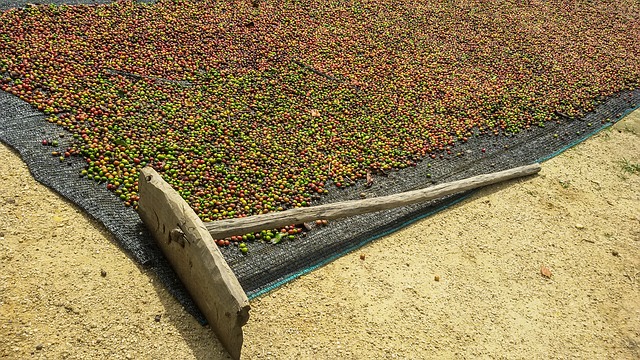Coffee is Tanzania’s largest export crop, with exports bringing in $60 million dollars each year to the economy (reported by USAID in 2009). Although rain plays an important role in the production of coffee, heavy rainfall can damage the drying of coffee, leading to loss of quality, and in extreme cases washing away the beans, causing substantial or total economic losses. Rainfall also impacts on the lives of those associated with this industry, with 350 coffee farmers and their families killed by landslides between 2010 and 2012 in the Mt Elgon district. In Tanzania, AfClix has been working together with the Centre for Agricultural Bioscience International (CABI) and the Lorna Young Foundation (LYF) as they seek to support smallholder farmers in Uganda and Tanzania. Both approached AfClix for help, and a proposal was developed to look at the science behind the extreme and persistent weather events that trigger, for example, the landslides in tropical East Africa, and how they are linked in time. This research will lead to a quantification of their current and future risks. In conjunction with the scientific work, there will be an assessment of the vulnerability of coffee growers, and this will be achieved by engaging with local organisations working at the community level. To best use this knowledge to improve resilience to climate-related shocks, LYF’s successful weekly radio programme linking coffee farmers in Kenya to people with climate and agricultural expertise will be extended to Tanzania.
This research is part of the Africa Climate Exchange (AfClix) project, a knowledge transfer project to facilitate the exchange of climate science and adaptation knowledge.
Research led by Dr Ros Cornforth
First published: June 2015

